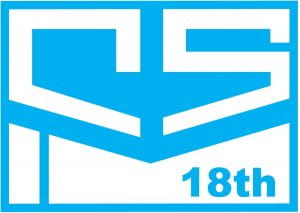Elizabeth Hall – Biographical Sketch
Professor Lisa Hall is Professor of Analytical Biotechnology and Head of Department in the Department of Chemical Engineering and Biotechnology, University of Cambridge. She is an internationally recognised authority in the field of biosensors. Her research is focused on understanding how biology can be interfaced with electronic, mechanical and optical systems and new ways to answer fundamental and applied questions concerning new measurement regimes to achieve diagnostic systems. She was awarded the Gold Medal by the Analytical Division of the Royal Society of Chemistry in 2005 and the Alec Hough-Grassby Memorial Award by the Institute of Measurement & Control in 2009 and in 2015 she was appointed a CBE for services to higher education and sport for the disabled in the Queen’s Birthday honors list.
Jong-Heun Lee – Biographical Sketch
Jong-Heun Lee has been a Professor at the Department of Materials Science and Engineering, Korea University since 2003. His research interests include semiconductor gas sensors and functional oxide nanostructures. He received his BS, MS, and PhD degrees from Department of Inorganic Materials and Engineering, Seoul National University, Seoul, Korea, in 1987, 1989, and 1993, respectively. Between 1993 and 1999, as a senior researcher, he developed automotive air-fuel-ratio sensors at the Samsung Advanced Institute of Technology. He was a STA fellow at the National Institute for Research in Inorganic Materials (currently NIMS, Tsukuba, Japan) from 1999 to 2000 and a research professor at Seoul National University from 2000 to 2003. He is an editor of Sensors and Actuators B: Chemical, a fellow member of the Korean Academy of Science and Technology and general member of the National Academy of Engineering of Korea. In 2014, he has been selected as ‘Highly Cited Researchers’ by Thomson Reuters for ranking in the top 1% most cited papers. He has won several awards including ‘POSCO TJ Award’ (2017), ‘Knowledge Creation Award’ (2014), ‘100 Future-Leading Technologies and Their Developers’ (2013), ‘Korean Sensor Society Academic Award’ (2016), ‘Korea University Special Award for Distinguished Research’ (2014), and ‘Patent of Year’ (2001). He was co-chairman of International Meeting on Chemical Sensors 2016, Jeju, Korea. He published 305 peer-reviewed papers and holds 40 domestic and international patents.
Mark E. Meyerhoff – Biographical Sketch
Mark E. Meyerhoff is currently Philip J. Elving Professor of Chemistry in the Department of Chemistry at the University of Michigan, Ann Arbor. He received his Ph.D. from the State University of New York at Buffalo in 1979, working with Professor Garry A. Rechnitz. Following a short post-doctoral stint at the University of Delaware, he joined the faculty at Michigan as an Assistant Professor in the Fall of 1979. Professor Meyerhoff’s primary research interests are in the field of analytical chemistry, particularly the development of new ion-, polyion-, gas-, and bio-selective electrochemical/optical sensors suitable for direct measurements of clinically important analytes in physiological samples. He also has a very active research program in the area of biomaterials, especially the development and characterization of novel nitric oxide (NO) releasing/generating polymeric materials. He and his collaborators have authored more than 380 original research papers on these and other topics over the past 40 years since beginning his independent academic career at Michigan. Professor Meyerhoff has received the ACS-Division of Analytical Chemistry Award in Electrochemistry in 2003, the Society for Electroanalytical Chemistry’s Reilley Award in 2006, The University of Michigan’ Outstanding Graduate Mentoring Award in 2006, the University of Michigan’s Distinguished Faculty Achievement Award in 2011, and the Ralph Adams Award in Bioanalytical Chemistry from the Pittsburgh Conference on Analytical Chemistry in 2014.
Joseph Wang – Biographical Sketch
Joseph Wang is SAIC Endowed Chair and Distinguished Professor in the Department of Nanoengineering at University of California, San Diego (UCSD). He is also the Director of the UCSD Center of Wearable Sensors and the Founding Editor of Electroanalysis. He served as the Chair of the Department of Nanoengineering (2014-2019) and as the Director of Center for Bioelectronics of ASU (2004-2008). Wang has made pioneering contributions to wearable biosensors, electrochemical devices, nanomachines, nanobioelectronics. Prof. Wang has published more than 1060 papers, 11 books and he holds 30 patents. These publications have been cited approximately over 107,000 times and his H-index is 160. He has been an ISI Thomson Reutors Highly Cited Researcher in both Chemistry and Engineering between 2014- 2019.
Professor Wang received several national ACS, ECS and SEAC Awards in Instrumentation and Electrochemistry, 10 Honorary Professors from around the globe, and 3 Medals of honors from the UK, Australia and Czech Republic. Dr. Wang is a Fellow of the ECS, Royal Society of Chemistry (RSC), and of the American Institute of Medical and Biological Engineering (AIMBE). Wang has guided over 300 PhD students and post-doc fellows over his career.

